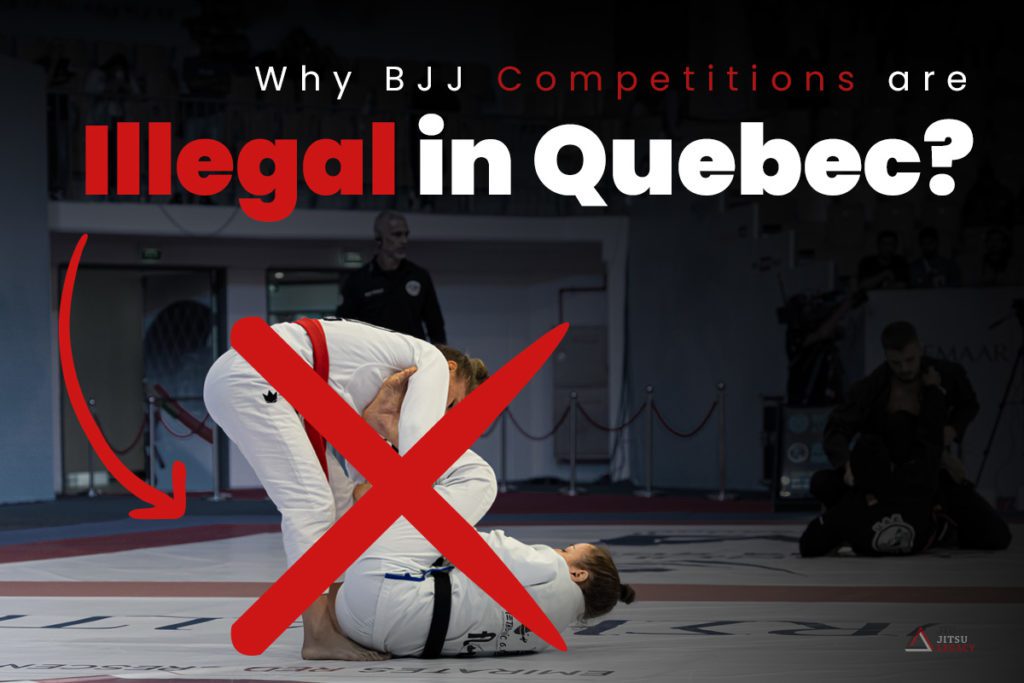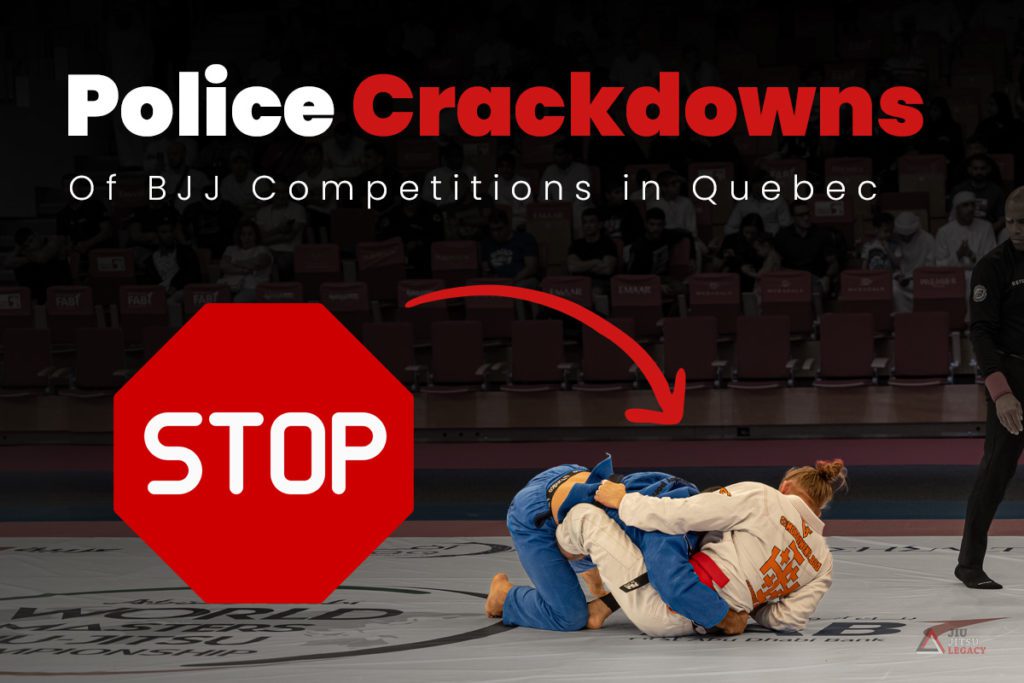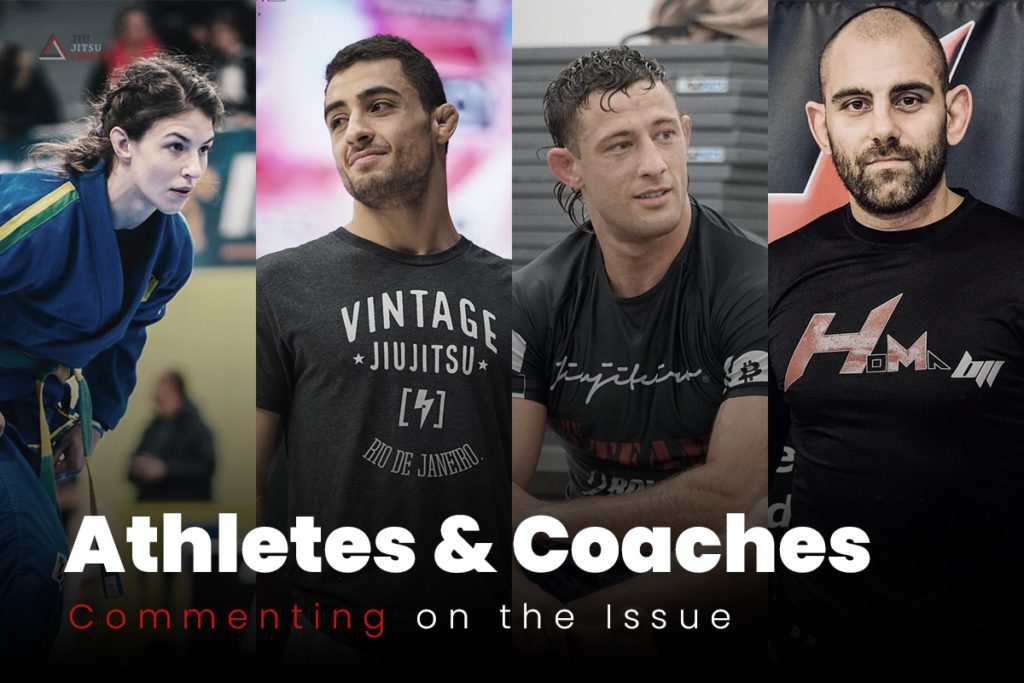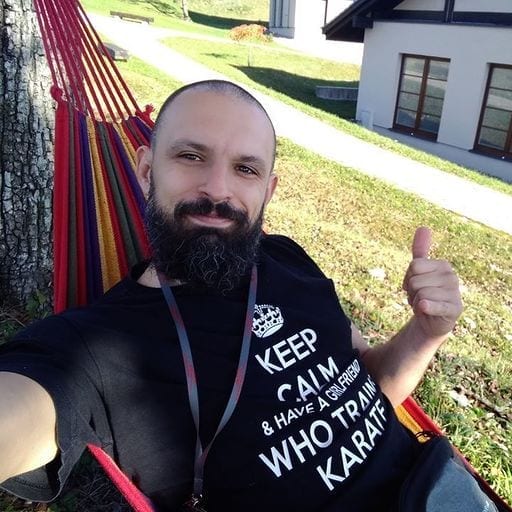Did you know that competing in Brazilian Jiu Jitsu is illegal in some parts of Canada as a result of an amendment to Canadian law passed by the Canadian House of Commons? The 2013 amendment, which categorizes BJJ competitions as “prize fighting” events, prohibits any form of competition from taking place, despite training being allowed. This led to the Jiu Jitsu Quebec issue being taken public worldwide in an attempt by athletes to solve it.
The Jiu Jitsu Quebec Issue

Jiu Jitsu is not illegal in the entire state of Canada. In fact, training in Brazilian Jiu Jitsu, MMA, or any other type of combat sport is perfectly legal. I mean, some of the greatest stars of the sport of MMA come from Montreal’s world-famous Tristar gym, led by Firas Zahabi.
BJJ competitions, on the other hand, are a whole different can of worms in Canada. All close-contact combat sports are put in a very broad category under Canadian law, branding them as “prize fighting” events.
The amendment was initially meant to prevent and sanction cage-fighting events, but all it did was affect BJJ competitions instead.
The Jiu Jitsu Quebec issue came to the attention of the BJJ community when the provincial government in Quebec shut down the AJP Canadian National Pro tournament just hours before its beginning in 2017, stating the law amendment as their reason.
According to the Canadian Criminal code, which is the law that regulates combat sports, amateur wrestling events, and Judo tournaments are legal.
However, despite not being fairly described by their definition of prize fighting in section 83(2)(a) of the Code as “an encounter or fight with fists, hands, or feet between two persons who have met for that purpose by previous arrangement made by or for them,” Jiu Jitsu somehow ended up on the wrong side of the ban.
One most likely reason for the misunderstanding is that traditional Japanese Ju Jisu does involve strikes, and government officials do not see the difference between Japanese Ju Jitsu and BJJ.
Instead of initial reactions fixing the Jiu Jitsu Quebec issue, authorities actually extended the ban to encompass other grappling styles like Sambo as well.
While it may sound like a joke and the administrative fluke it is, Canadian authorities are taking the law very seriously, so much so that there have been police crackdowns on those attempting to organize BJJ competitions in the region.
Police Crackdowns

Apart from the Montreal city police (SPVM) preventing the AJP Canadian National Pro tournament from taking place, threats were issued that anyone attempt to defy their orders is going to be arrested, organizers and participants alike.
Police crackdowns, or rather the obvious threat of them, have prevented the grapplers and academies from the quite large local Jiu Jitsu Quebec scene to try and organize a competitive event since.
The SPVM’s action against t AJP tournament, as well as the disrupting and blocking of several kickboxing tournaments from taking place in the province, has only caused more disdain and displeasure among combat athletes.
The interesting thing is that federal law does allow every province to regulate and legalize combat sports and martial arts competitions as they see fit.
Ontario, British Columbia, and Prince Edward Island have found a way to lift the ban, opening up their territories for BJJ, MMA Sambo, and the like. Quebec, for some reason, decides to stick with the unpopular section 83 of the Canadian Criminal Code.
“Imagine if you were a hockey fan, and all of a sudden the government tells you, you’re allowed to practice hockey, but you’re not allowed to have a hockey match”
Said Martin Nguyen, a local tournament organizer who has to promote and organize tournaments in nearby Ontario instead of Quebec.
Athletes and Coaches Speak Their Mind

Despite the ban making life insurable for local athletes, Quebec has produced some of the greatest names on the grappling scene today. 2022 ADCC champion Brianna Ste-Marie, Oliver Taza, and Ethan Crelniten are just a few examples of the Jiu Jitsu Quebec scene and have been very vocal about the issue lately.
“I don’t know if this is at all going to make a change – but jiu-jitsu competitions are actually illegal in Quebec, where I’m from. All of us are coming out of Montréal, and competitions are illegal there – so, if this coverage can somehow make a change for that, I’ll just point out how ridiculous that situation is.”
Brianna Ste-Marie told Kendall Reusing in her ADCC post-fight interview.
“[Jiu-jitsu competitions] became illegal because of selfish reasons between two promoters who didn’t want to see each other succeed.”
Oliver Taza told the Ju Jitsu Times.
According to Ethan Crelinsten, who also confirmed the story of two promoters in a feud, who kept calling the authorities on one another, “I don’t know what happened, and I don’t claim to know who was in the right or the wrong,”
“You want hungry athletes in your city! They’re the best customers! I did an IBJJF event in Montreal a long, long time ago, at blue belt – and if they did an IBJJF Open in Montreal, I’d fly back and do it in a heartbeat,”
Added Crelinsten.
Johnny Zemouli is the co-founder of HoMa BJJ, an academy in Hochelaga-Maisonneuve.
“Our champions went outside of Montreal. They’re going to Toronto, New York … to compete.”
Said Zemouli to CBC News.
Zemouli is on a committee trying to explain to the government the misconception they have in their seeing of BJJ as prize fighting.
“They say it’s going to take more time than expected.”
Zemouli said.
“I want to be competing at the highest level. Even if I want to do smaller competitions, I still have to go to the U.S. But if I could stay here, I could pay less, I could it do more often, since we have a pretty good level of competition here in Quebec.”
Said Francis St-Amour, who regularly travels to participate in BJJ competitions.
Is There Hope For Quebec?
Currently, the Jiu Jitsu Quebec issue is being shouted from many directions, and something has to change.
An advocacy organization named One Two Jitsu is battling hard to change the government’s views on the subject.
“I wanted to create a brand that would promote jiu-jitsu in Quebec – and that was the birthplace of One Two Jitsu.”
Explained founder and BJJ coach Steven Maclure to Jiu Jitsu Times.
Maclure has already met several times with government officials, saying:
“We have to educate the government to make sure that our competitions are safe for everyone to participate in.
Once we do that, the government is really, really open to legalizing [jiu-jitsu] – but we have to do our work.”
“I think the first step is spreading the message,” Brianna Ste-Marie said. “Once I started posting more about the problems in Quebec, I realized that so few people knew about the situation, even fellow Canadians!”
We hope we did something to share the message about the Jiu Jitsu Quebec issue and that we can help our fellow grapplers from Quebec get back on the competition mats as soon as possible!

Ogi is a black belt that does Jiu Jitsu full time and is very passionate about anything grappling-related.
He is also the head coach of Enso Jiu Jitsu in Macedonia and an aspiring Globetrotter.
